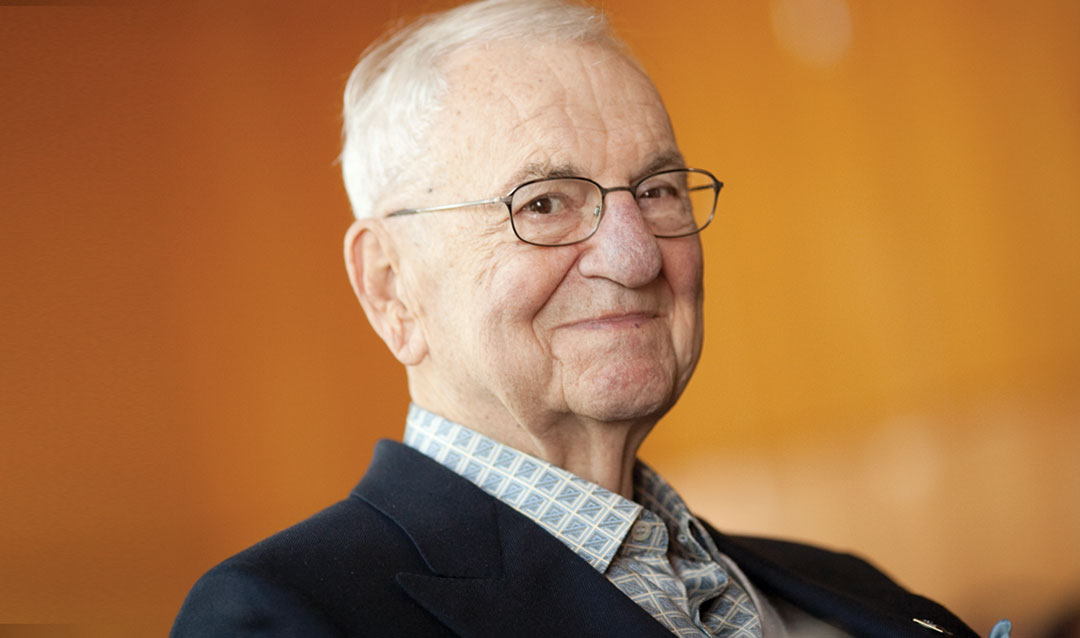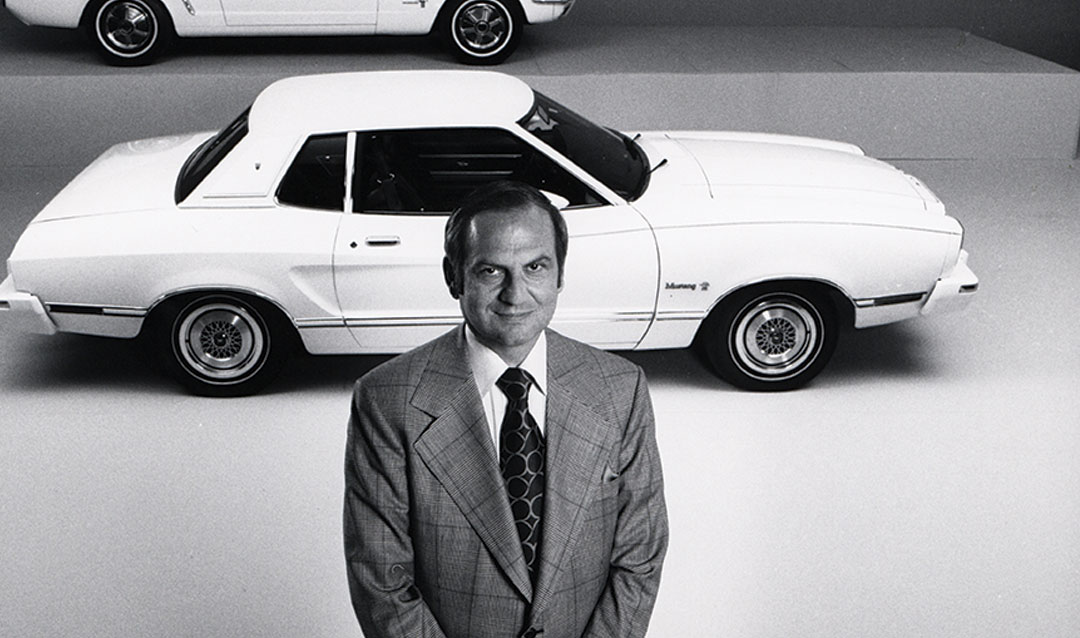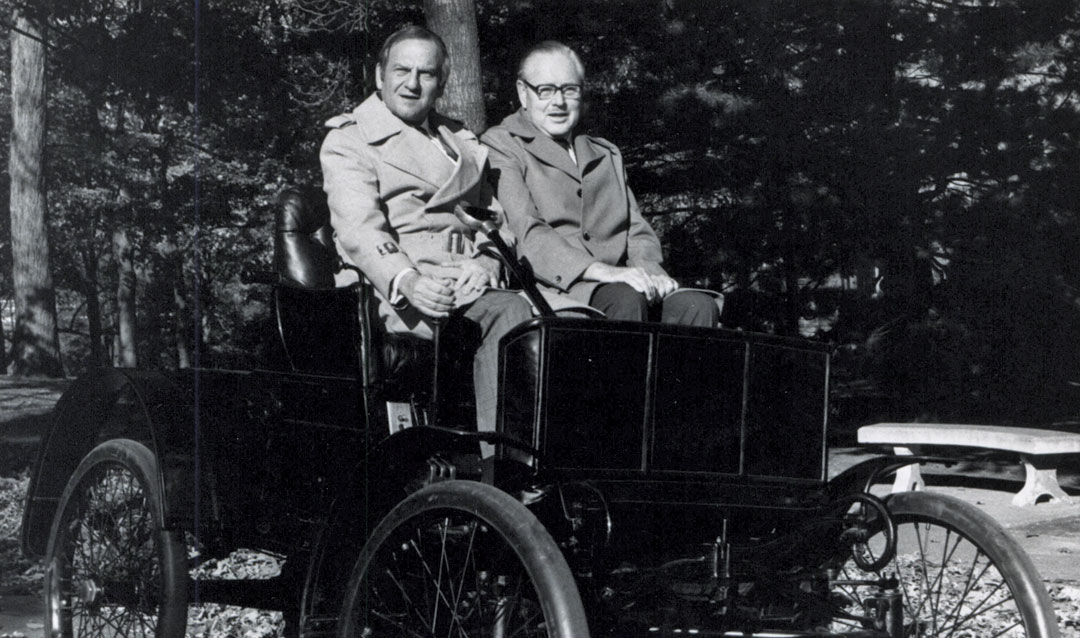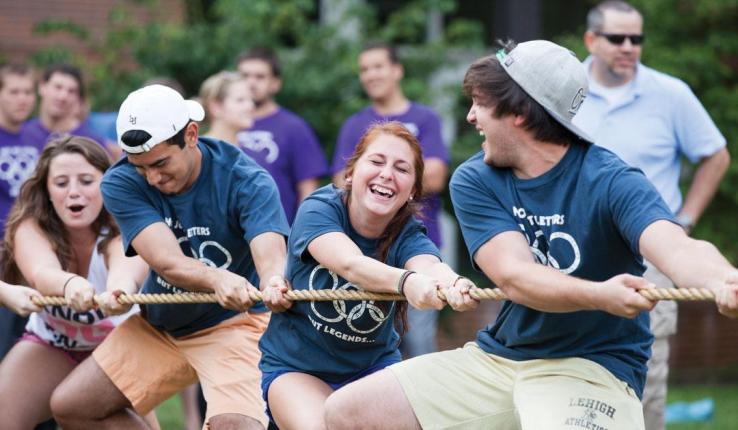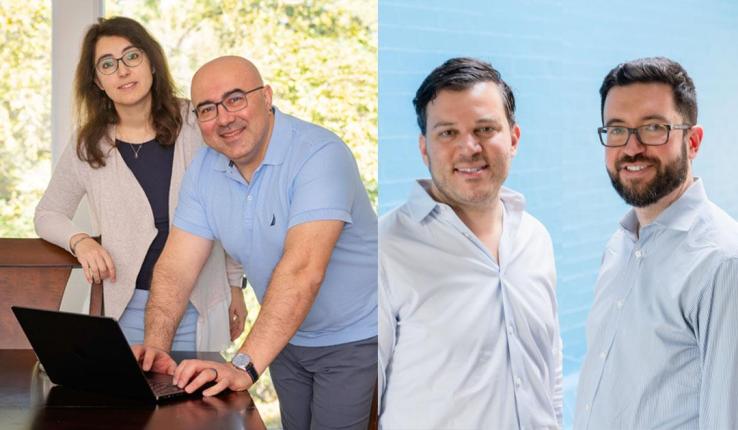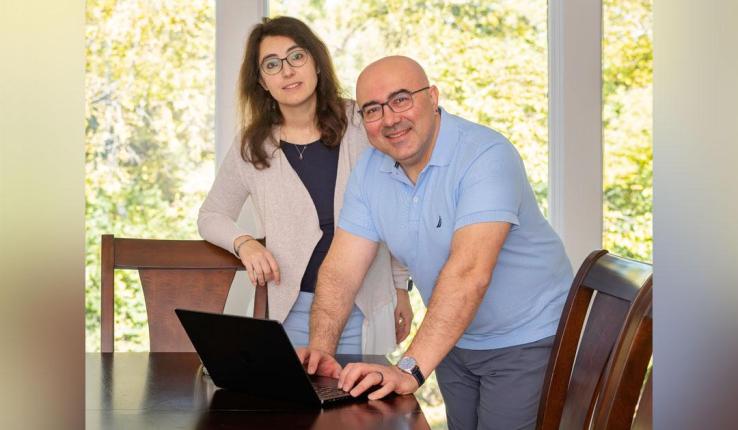A Stellar Career
Iacocca enjoyed a long and spectacularly successful career, which took an unexpected turn when he discovered that he preferred the business aspect of the automobile industry over the engineering component. He entered the sales and management ranks early on, according to his Lehigh biography and, in 1956, he introduced the “56 for 56” plan in the Philadelphia district of Ford. In his plan, consumers made a 20 percent down payment and then paid 56 dollars a month for three years. The idea was so successful that the president of Ford decided to use it in national ad campaigns.
As general manager of the Ford Division, he was credited with introducing the design of the 1964 Mustang. He was on the cover of Time magazine for the first time in April, 1964. Six years later, on December 10, 1970, Iacocca was named President of Ford. During his tenure at the company he was also partially responsible for the Lincoln Continental Mark II, the Ford Fiesta, and the revival of the Mercury brand.
Iacocca’s move to Chrysler came in 1978 following a power struggle with Henry Ford II. He was hired as president for the nearly-defunct Chrysler Corporation, and his legendary leadership would eventually help reverse the firm's fortunes and cement his place in the landscape of American business.
Iacocca's first task was to raise money to fund new projects for the failing company. In addition to the $1.5 billion governmental loan he was able to acquire, he also had to close plants and negotiate with labor unions to accept layoffs and wage cuts. In July 1983, only five years later, Iacocca was able to turn the company around and pay back the entire loan—including interest—seven years before his deadline.
Breathing new life into Chrysler earned Iacocca another cover of Time in March 1983. In addition to Chrysler's new smaller, more fuel efficient cars including the K-car series that replaced the old gas guzzlers, Iacocca introduced the main reason for the company's success: the 1984 T115 minivan. After early resistance, he pushed for mandatory seat belts, interlocking systems, and the installation of airbags.
His TV ad commercials made popular the slogan, "If you can find a better car, buy it." He also engineered the $1.5 billion acquisition of American Motors (AMC) and the Jeep Cherokee model. When Iacocca retired from Chrysler in 1992, the firm's profits were up and thousands of American manufacturing jobs were secure.
In 1986, Iacocca was elected to the prestigious National Academy of Engineering in 1986, one of the highest honors accorded to an engineer.
After his success with the improvement of the Chrysler Corporation, then-President Ronald Reagan tapped Iacocca to serve as chairman of the Statue of Liberty-Ellis Island Foundation. Under his leadership, the organization was able to raise nearly twice the $230 million budget it required for the restoration of the two monuments that serve as lasting symbols of the American immigrant experience.
Iacocca agreed to return to Chrysler in 2005 to appear in a few new television commercials. "The pride is back." and "If you can find another car, buy it," were once again used.
Part of the National Dialogue
Iacocca is the author of four books: Iacocca: An Autobiography, one of the best-selling non-fiction hardcover books in 1984 and 1985 (it was republished in 2007), Talking Straight in 1988, “I Gotta Tell You”: Speeches of Lee Iacocca in 1994, and most recently, Where Have All the Leaders Gone? in 2007.
At one time Iacocca was urged to run for President of the United States, and a number of Ford and Chrysler dealers across the country even provided him with initial funds. Although he played an active role in politics throughout his later years through his candid, no-nonsense commentary, it was reported that his family and close friends convinced him not to seek public office.
He has, however, remained a voice in the national dialogue and his sought-after support of candidates crossed traditional party lines. He supported George W. Bush in the 2000 presidential election, but turned toward Bush’s opponent in 2004, throwing his support behind then-Senator John Kerry. He endorsed New Mexico Governor Bill Richardson in his quest for the presidency in 2008, and went on to support former Massachusetts Governor Mitt Romney in 2012.
Along with his extensive work with the Iacocca Foundation, his later years were marked by the management of two of his own businesses: Villa Iacocca, a wine and olive oil import company that he founded in 1986, and Olivio Premium Products, a sister company that creates healthier, olive-oil based replacements for butter that he founded in 1993 with his son-in-law.
He was preceded in death by his wife, the former Mary McCleary, a Ford Motor Co. receptionist he met in the late 1940s. The couple married in 1956, and Mary died in 1983 following a lifelong struggle with diabetes. Her experience prompted Iacocca to devote much of his own life to supporting diabetes research. He established the Iacocca Foundation, which has raised more than $23 million to fund diabetes research, and the Kids with Courage Foundation, which provides support systems for children with Type 1 diabetes.
He is survived by his sister, Delma Kelachava, two daughters—Kathryn and Lia—and eight grandchildren.


